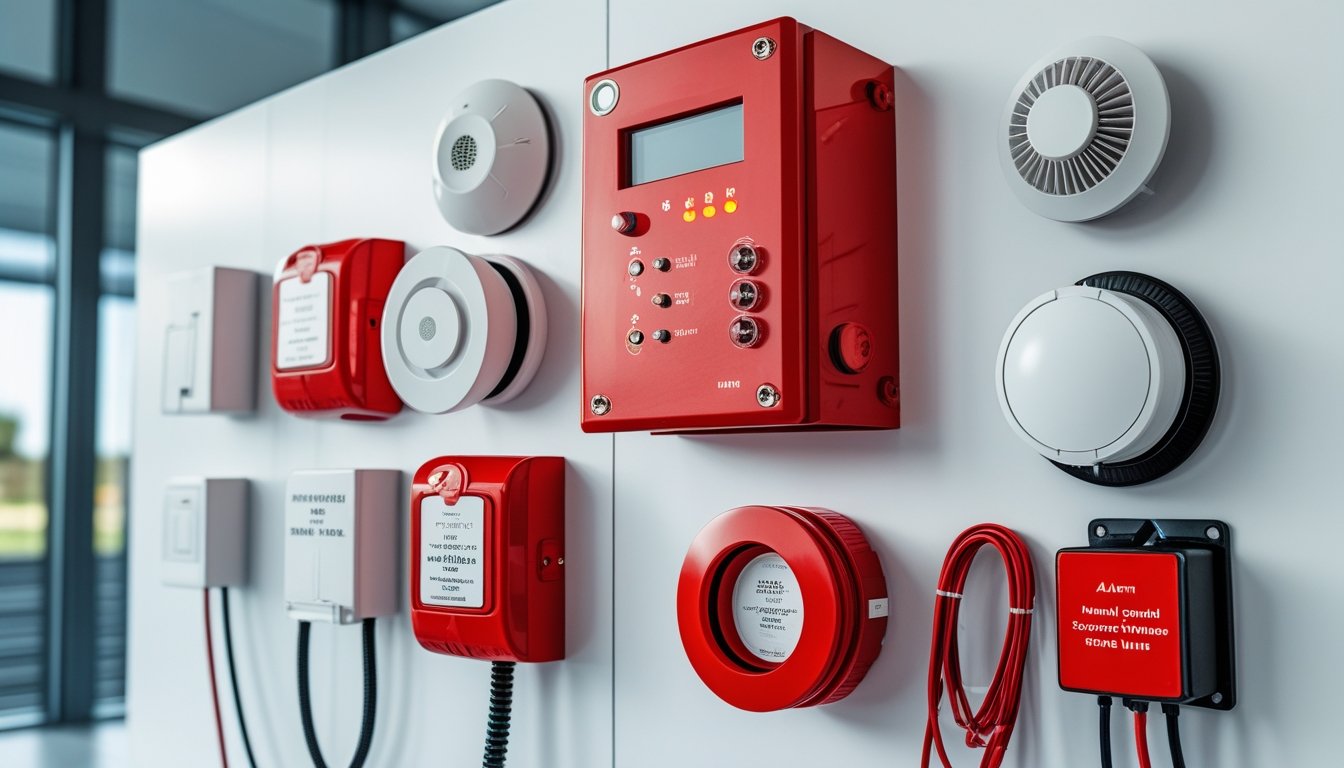What are false alarms? According to EPS Security, false alarm is the term used to refer to a situation wherein a security system detects danger even when there is none. The best example of this is when a motion detector sets off because of an unusual movement. But when checked, it's just a strong gust of wind.
False alarms are rampant in the United States, both in businesses and private homes. Based on an article by Security Magazine, over 90% of security notifications are merely false alarms. Because of this data, different cities have set penalties to prevent this from happening.
An article from Angi gave an estimate ranging from $25 to almost $400 worth of fines. It’s also reported that there are cities that give considerations and time allowance to fix the possible causes of false alarms. Meanwhile, other cities are strict and leave no room for error, especially if the false alarm comes from a registered security system.
According to Bay Alarm, about 80% of false alarms are said to be caused by human errors. The other probable causes are wrong installation placement, faulty and/or outdated security equipment, and the presence of rodents, strays, etc. Since these causes are already identified, the next thing you need to do is to eliminate them. Good news, however. These causes are all preventable.
Steps to Curb and Prevent False Alarms
It’s important to identify security issues within your business and prepare for any that have yet to arise. These will also lessen the chance of false alarms triggering. Here are a few steps to help improve and prevent false alarms from hindering your workflow.
Train new employees
It’s already established that human error is the most common cause of false alarms. In resolving this problem, you also start with your people. The best time to teach them is when they first become part of your company. Security system policies and procedures should be part of their onboarding training, especially with the basic operations.
Safe Touch suggests that your employees should know and practice the appropriate opening and closing procedures. They should know how to disarm the alarm once they arrive and how to arm it if they’re the last to leave. The opening and closing team should also be well-prepared on the procedure if a false alarm occurs.
The level of access should also be clear to all of your people. They should know who’s allowed to enter the different rooms and who’s allowed to access the different doors. For example, if there are access codes that need to be used to enter highly confidential rooms, ensure that it’s well-communicated with the team.
Most importantly, your employees should be quick to identify whether there is a real danger or not. This is because when they’re trained to assume that it’s most likely just a false alarm, they might simply disregard the threat. Overall, the training process of your newly hired staff should be complete and continuously updated, depending on the system you currently have.
Security training should be continuous
As your security system gradually improves, your policies and procedures also adapt to the changes. That being said, your staff should be informed of all of the changes that are happening. You can’t rely on a security onboarding training your tenured employee had over five or ten years ago. It should be your priority to keep your people updated.
Company employees should be aware of changes in access levels, especially when they’re based on the movement of people. For example, Employee A is allowed to enter Rooms A and B but then gets transferred to another department. Access codes and levels might also change because of this.
There are also possible instances in which a change in the security system requires a company-wide changing of password credentials. In that case, there should be an announcement made before the change will occur so they’ll be prepared ahead of time. Then, another cascade should be made on the day and once the change has already happened.
Another important update that they should know is if there are updates to the company policies and protocols based on the security system you have. If the employees are unaware of the modifications made to the protocols, practicing the old ways might be another cause for a false alarm. If there are also new security systems installed, they should know how to operate it correctly.
Conduct routine maintenance
Mosly, a security system is composed of various equipment that needs to be closely monitored from time to time. There should be an annual checkup for all your security equipment. And of course, you should stick to the given schedule. But why is routine maintenance important?
Annual maintenance can help prevent any security breakdowns. According to AI Security, it also minimizes false alarms by making sure that your whole system is optimized. Aligned with that, these professionals will also be able to tell you which faulty equipment needs repair and which ones need to be replaced.
Besides lessening the chances of false alarms, routine maintenance also complies with the needed legal and insurance requirements that every company should follow. It also increases the safety level of your company and ensures the good health of your employees.
Schedule a regular check of equipment
Besides the annual checkup done by a security company, you should also assign some of your employees to do a regular check of the equipment. Although they won’t be able to fix the big problems, it would be a great help if they’d be able to do what they can on their own.
One of the main reasons why a security system is malfunctioning is due to poor or weak batteries. Replacement of the batteries can be done by your employees, so you don’t have to wait for the next annual checkup to happen. This means that your workers should know how to identify these minimal problems that are solvable on your end.
Some devices are plugged in and require the use of electricity. Some of these allow an option to use backup batteries when the electricity’s out. Your employees should ensure that the backup batteries are still working and active in case of a power outage. If not, it could lead to it making false alarms.
Just like the annual routine maintenance, the regular checkup should be done on a strict schedule too. You can choose to create a team solely devoted to checking the system or you can interchange the assigned employees from time to time. It’s better to choose the latter since this will allow your workers to practice what they know about the security system.
Update your security system
There are cases in which the old equipment starts malfunctioning, and you can no longer fix it because it needs to be replaced. These outdated systems are said to cause more false alarms than new ones. What could be the possible reasons?
Well, for starters, the sensors used by old equipment may not be as smart as the new ones. They could not properly process movements and other causes which would lead to them going off randomly. Also, they lack new features that are made for preventing false alarms. So what type of system should you invest in?
Pro-Vigil promotes the usage of artificial intelligence (AI) and machine learning for your security system. There is AI-based equipment used by top-tier companies that records redundant movement from daily operations. From there, it will be able to differentiate what’s normal and what’s not. So if there are any unusual movements, it’ll be able to see them and prompt accordingly.
Some sensors have stopped focusing on the movement factor to lessen mistaking a random move as a threat. For example, a glass-break detector device focuses on the act of breaking glass and not on the movement of curtains. A passive infrared motion detector can differentiate the movement of human beings down to even small animals.
Investing in high-quality security equipment does not only eradicate false alarms, but it also allows your system to become fully automated. It’ll allow your employees to focus on other matters. Putting your money into the right system will overall increase your security and accuracy.
Observe proper installation of the equipment
Placement is key. You may think that it's not a big deal to place sensor detectors anywhere, but this has an impact on false alarms. For example, if you've placed a motion sensor near a vent, the mere air from the A/C could trigger a false alarm. So that's one of the places you should avoid putting a sensor.
It's also not advisable to install one near curtains because as mentioned earlier, some motion detectors could mistake the movement of a curtain as a person moving about. Imagine if the A/C is faced toward the curtain, which would make it sway from time to time. Your detector would be going off incessantly when danger isn't present.
Smoke alarms are also not advisable to put within proximity to the kitchen. The smoke from cooking has a big chance to trigger a false alarm. It's better to put a different kind of alarm within this area. The key is to correctly install the alarm and detector devices.
The best solution to this problem is to hire a professional to do the job for you. The example given here is only one of the many things you must consider when installing your security equipment. Meanwhile, if the system is already installed, you can still hire a professional to remove it and transfer it to a better location, where it’s less likely to cause an unnecessary alarm.
Check the environment and eliminate distractions
We've discussed the importance of proper placement. Let's learn how you can also avoid triggering the alarm by reducing movement or any unintentional distractions. This example is for motion detectors since they are one of the most common alert systems businesses have. It's also one of the many sources of false alarms.
Heaters, fans, hanging signs or decorations, balloons, pets, and curtains are only some of the things you need to move away. These factors could cause movement at any time of the day. If you think it’s almost impossible to keep these objects away, then you should configure the sensitivity settings of your device.
Employees should also ensure that all the bases are covered before they leave the premises. This means that doors and windows should be securely locked before the alarm is armed. If not, besides actual danger, it could also be another reason for a false alarm. It might even trigger before the last employee leaves.
Conclusion
Companies should invest in the best security system to ensure safety within their buildings. But they should also be aware of the responsibility they have once they have the system. False alarms may not bother you, but it’s very inconvenient for police officers since they do receive the calls whenever an alarm goes off.
The authorities did their part by consistently reminding the public that a false cry for help is a criminal offense. They even established penalties for every time an alarm goes off. Yet despite their efforts, they still receive countless reports from businesses and homes. It’s time that you do your part to keep it from happening to you.
The key is to first identify the reason behind the false alarms. Is it your employees? Do they lack the needed basic knowledge of your security system? Or does it have to do with the equipment you’re using? Is it broken and in need of repair or replacement? Or is it because of the improper placement of the equipment?
Once you know what’s wrong, you can move forward to identify how to eliminate the cause. There are many ways to limit the chances of false alarms. With the proper training, routine maintenance, proper placement, and updated equipment, you’ll be able to spare your company the stress and the penalties that need to be paid. Most importantly, ensuring you have an optimized security system and a knowledgeable team increases the overall safety of your company.
.svg)



.svg)


.svg)



